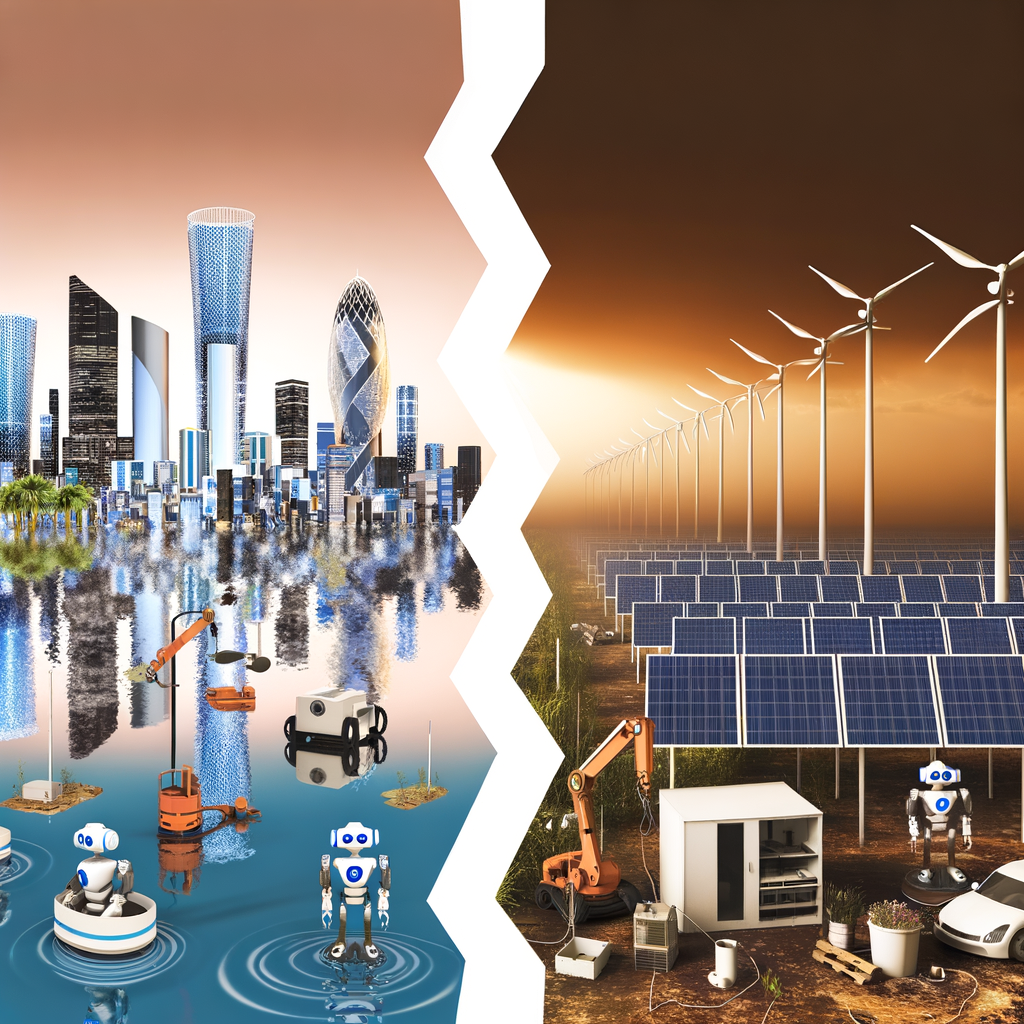In a world increasingly dominated by AI, robotics, and rapid technological advancements, the traditional economic models we’ve known are evolving into what some call the “Luxury Economy” — a paradigm where technological ubiquity and resource abundance reshape our financial landscape. However, this burgeoning Luxury Economy comes with both promise and peril, especially when viewed through the prism of the renewable energy transition.
In today’s blog post, we delve into the pressing issue of why the transition to renewable energy faces significant challenges, even amidst the backdrop of an evolving Luxury Economy. We’ll unpack the nuances of this failing transition, shed light on potential systemic bottlenecks, and discuss how those maneuvering through financial markets can navigate these tumultuous waters effectively.
The Illusion of Boundless Progress
For many, the term “Luxury Economy” conjures images of unprecedented wealth, advances in AI, and an era characterized by unparalleled convenience and resource availability. But beneath this veneer lies a stark reality: the renewable energy transition, which many see as a linchpin for sustainable growth, is stumbling.
At its core, the Luxury Economy thrives on abundant technological infrastructure and resource optimization. Yet, the renewable energy sector seems to lag behind. According to recent studies, only a marginal percentage of global energy production stems from renewable sources despite vigorous investments and governmental pledges.
There’s often a disconnect between the pace of technological advancement and the practical deployment of sustainable energy solutions. This slow adoption isn’t merely a technical glitch but a complex web of economic, political, and social factors requiring thorough exploration.
Systemic Bottlenecks Thwarting the Transition
1. Economic Disincentives
Traditional energy markets slow renewable energy investments due to entrenched fossil fuel enterprises that create economic barriers. Transitioning to renewables requires dismantling existing supply chains, retraining workforces, and updating energy grids, demanding significant financial investments and posing risks. These factors deter stakeholders invested in long-term fossil fuel ventures.
2. Political Gridlock
Politics is another critical roadblock. Renewable energy policies are often under consistent renegotiation, subject to the volatility of electoral cycles, and swayed by powerful lobbying efforts from fossil fuel industries. Legislative progress is frequently stalled, creating an uncertain regulatory environment that discourages long-term private sector investments in green technologies.
3. Technological Limitations and Infrastructure
Despite advances in renewable technologies, limitations persist. Energy storage technologies like batteries haven’t yet reached the efficiency levels required to stabilize grid systems primarily based on intermittently available energy sources like solar and wind. Moreover, existing power lines and substations must be retrofitted or replaced to accommodate these new sources, translating into further economic and logistical hurdles.
Opportunity in a Struggling Transition
For those weary from the tumult of traditional business or multilevel and network marketing opportunities but eager to harness financial markets’ potential, the failing renewables transition presents a unique landscape.
Leveraging Decentralized Financial Systems
We advocate for a pivot towards decentralized financial systems (DeFi), which operate independently of traditional intermediaries. DeFi platforms facilitate transparency and accessibility, offering robust alternatives to traditional asset management.
In the context of renewable energy investments, decentralized systems reduce susceptibility to economic and political turmoil plaguing conventional markets. By leveraging blockchain technology, investors directly back renewable projects through smart contracts, thus minimizing intermediaries and enhancing transparency.
Unique Opportunities in a Struggling Sector
Rather than discounting the renewable sector due to its slow progress, savvy investors might find robust opportunities in transitional technologies. Innovations that address the critical roadblocks — for example, advanced battery storage technologies or intelligent grid systems — are likely to yield high returns.
By adopting a futurist’s perspective and endorsing companies striving to bridge the gap between established energy frameworks and renewable innovations, you can capitalize on segments poised for exponential growth.
A Call to Action
Addressing the failing renewables transition offers a unique opportunity for wealth creation and societal betterment through the Luxury Economy. This requires more than superficial investments; it demands a recalibration of economic models, political commitments, and technological approaches. Our mission is to provide strategic insights and investment opportunities to foster a greener financial landscape. By utilizing decentralized financial systems like Pool Funding, investors can support unique opportunities arising from this transition.
Join us as we navigate the intricate dynamics of the Luxury Economy. Together, we can transcend conventional constraints, drive the renewable transition forward, and build a sustainable future for all.
